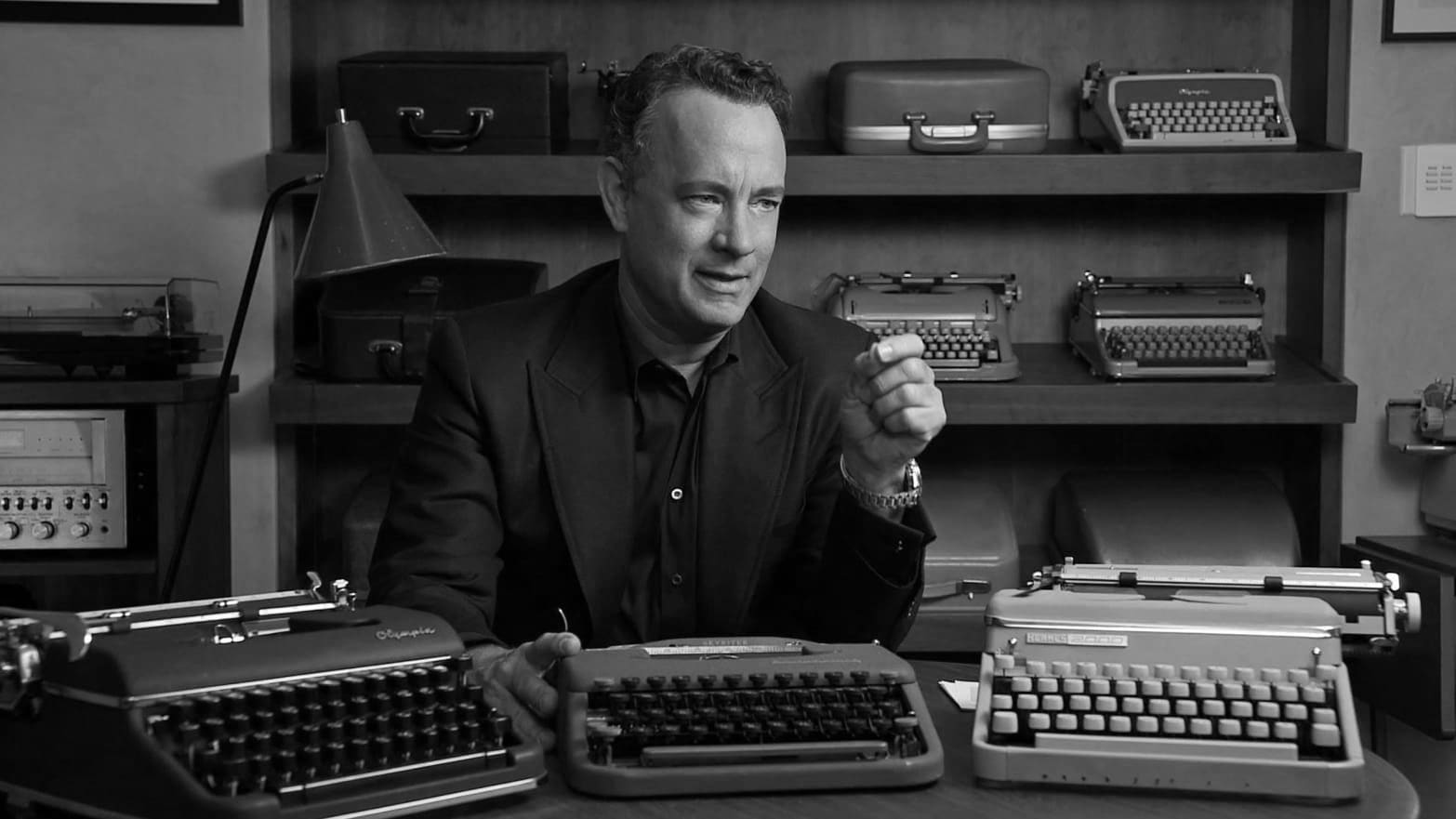Courtesy of ‘California Typewriter’
In a sun-dappled bungalow in Los Angeles, where the hum of digital devices has long since replaced the rhythmic tapping of typewriter keys, Tom Hanks sits before a gleaming Hermes 2000. His fingers hover over the keys, poised to strike, like a pianist about to coax a sonata from an ancient Steinway.
Hanks, the cinematic chameleon who has embodied everyone from a simpleton savant to a castaway conversing with sporting goods, harbors a passion that seems almost anachronistic in our age of backlit screens and autocorrect. He is, unabashedly and without irony, a typewriter enthusiast.
This peculiar obsession began in the twilight of his adolescence, when a well-meaning friend bestowed upon him a mechanical relic. It was love at first clack. Hanks recalls his inaugural visit to a typewriter repair shop with the misty-eyed reverence usually reserved for religious conversions or first kisses. There, amidst the smell of oil and ribbon ink, he encountered the Hermes 2000 – a Swiss-made marvel that would become the cornerstone of a collection now numbering some two hundred and fifty machines.
For Hanks, these contraptions are more than mere curiosities. They are time machines, portals to an era when the written word carried the weight of physical permanence. He waxes poetic about the “mini-explosions of SHOOK SHOOK SHOOK” that accompany each keystroke, a symphony of productivity that no silent keyboard can replicate.
This fascination has spilled over into his creative endeavors. His literary debut, “Uncommon Type,” is a collection of short stories where typewriters feature prominently, if not always centrally. One imagines Hanks hunched over his beloved Hermes, pecking out tales of love, loss, and QWERTY-induced epiphanies.
In a gesture that seems both magnanimous and slightly evangelical, Hanks has taken to gifting typewriters from his collection. Each machine is lovingly wrapped in a green towel bearing a yellow Playtone logo – a nod to his directorial debut and a silent rebuke to the cold efficiency of email attachments.
As our digital world races towards an ever more ephemeral future, Hanks stands as a champion of the tangible, the tactile, the indelibly inked. His typewriters are not merely tools, but companions on a journey through the written word. In an age where our thoughts are often as fleeting as our tweets, Hanks reminds us of the value of permanence, of the satisfaction found in the clack of a key and the ding of a carriage return.
One cannot help but wonder if, in some distant future, archaeologists will unearth one of Hanks’ typewriters, its ribbon still bearing the faint imprint of an unfinished story. What tales it might tell of the man who, amidst the digital cacophony of the 21st century, found solace in the mechanical poetry of a bygone era.
image: Courtesy of ‘California Typewriter’




